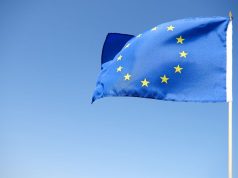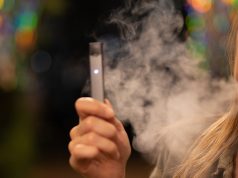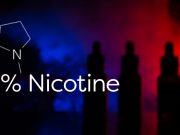
Vaping products are still unregulated by FDA in the USA, they also receive an overall negative scientific image, leading to a very nefast media overview.
This situation is the starting point of the Project Vape Manifest (PVM), a US vape shop survey analysis that was born from the collaboration between Roebling Research, ECigIntelligence, E-Cigarette Forum, and the Smoke-Free Alternatives Trade Association (SFATA).
An online survey of vape shops over seven weeks in August-October 2015
The report, signed by Ryan McCrossan (ECigIntelligence) and Steve Hong (Roebling Research), analyses data on 540 US vape shops across 42 States and contains essential information on vape store revenue attributed to e-liquid, tanks and atomisers, and mods, including regional breakdowns of the top selling brands, flavours, nicotine strengths and bottle sizes.
It also contains valuable information on ownership/franchising models, typical in-store retail environment as well as what vape store owners and managers think the future holds for the industry in the United States.
As a preamble of this report, an article by Steve Hong in the Tobacco Journal International gives more insight into the actual state of the vape channel and retailers’ points of view at cross roads between unregulated and over-regulated business.
From hobbiest vapers, unqualified retailers who turned a passion into a shop to vaping business professionals
The image of the pioneer vape shops, held by amateurs with no special skills but an extraordinary motivation to share their products is fading away when considering the current market. The term “sophisticated” probably best describes the apparent maturity of the business.
Indicators of success were studied by Roebling Research, like revenue and number of locations in the business. The survey captured a positive relationship between business maturity and the likelihood of generating monthly revenue above USD 30,000. In addition, most locations associated with businesses 2 years or older were part of a chain.
Based on their survey, averaged monthly store revenue approached USD 25,600 for an annual estimate per vape store location of USD 300,000.
How to consider the current vape market in the US?
The vaping business in the US is fast and fruitful. Within 2 years, vape shops have evolved such at a high speed as to generate large, above the average monthly revenue; they replicated their success in multiple locations by creating chains of stores.
The extract of the executive summary reveals that sales of e-liquid generated approximately 60% of vape shop revenue; half of all e-liquid sold is at 3mg/ml or 6mg/ml concentration. This suggests a large share of Tank-Mod hardware sold by the independent industry and only few cartridge-style hardware that are mostly owned by the tobacco industry.
The e-liquid market however remains fragmented (532 brands of e-liquid) while the hardware market is much more consolidated (52 brands of tanks and atomisers, and 42 brands of mods).
The trend is that as chain retailers increase in density and scale, the channel become mores consolidated. But this situation reflects the current unregulated conditions.
How will regulations affect these businesses in the future?
Crucial points are the federal deeming regulations and the regulation at state level.
Most vape retailers (98%) welcome a federal regulation to a certain point, provided that it is sensible, but they do not feel that current or proposed regulations both at the federal or the state levels will be good for their business: Two in three feel that proposed or current regulation at the state level would rather hurt their business. Only a minority (10%) feel that state level regulation would help.
The general feeling among retailers is that as gap exists between regulators and retailers that should be filled by the industry as a whole.
When asked about their future, retailers’ most popular response was, “Somewhat optimistic”. An answer that captures the awkwardness of the late Golden years compared to the uncertainty of their regulated future.
Roebling Research is a boutique vape market research firm specialzing in consumer research and industry insights for both market leaders and entrepreneurial brands.
Roebling’s principal investigator and founder, Steve Hong, is a researcher and consultant with experience advising brands ranging from multi-national category leaders to niche players. He specialized in market research, marketing strategy, business development, and qualitative/quantitative analysis methods.











